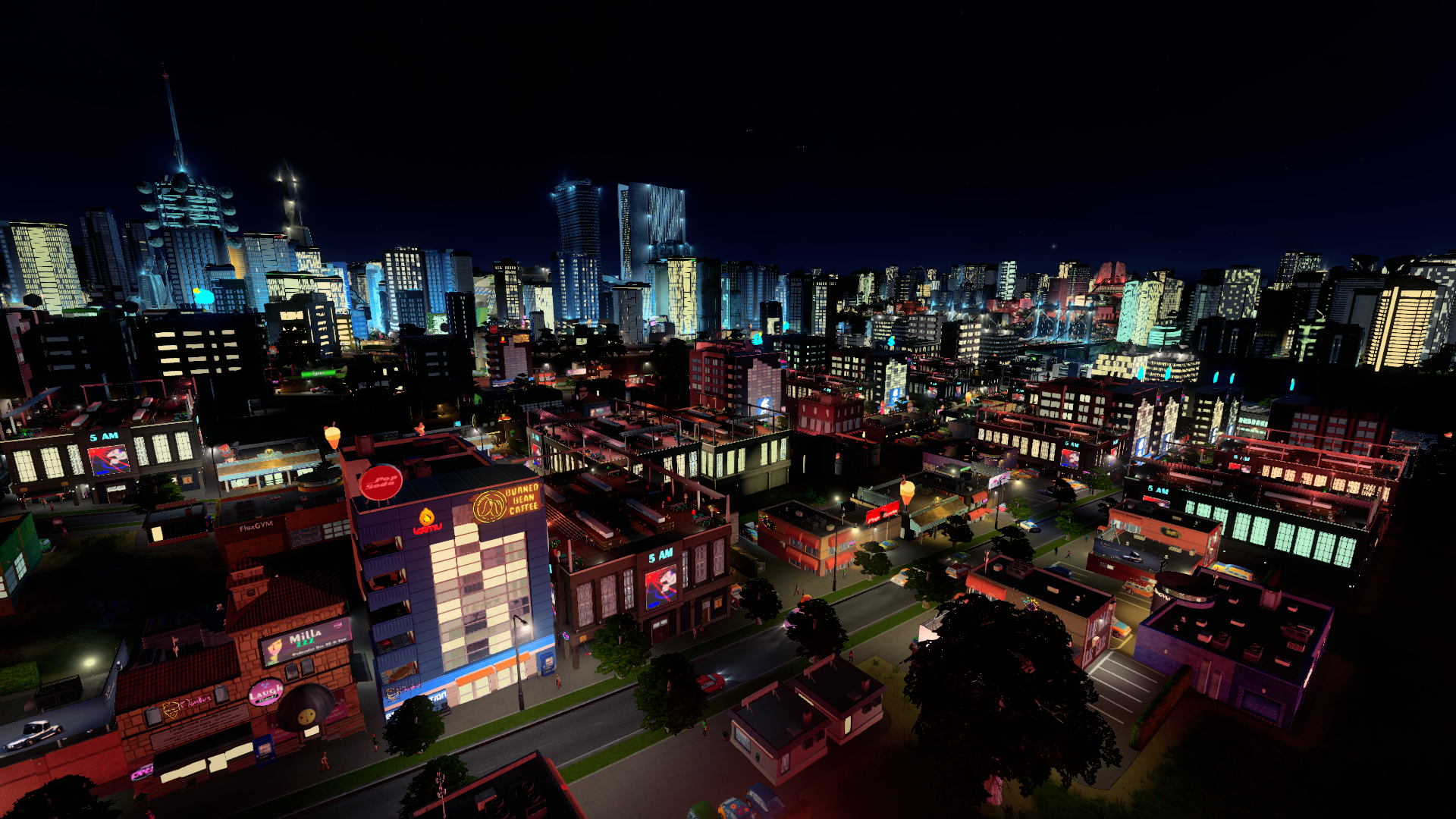Our Verdict
Provides nice visuals, new buildings, and some fun options for crafting and managing your city.
PC Gamer's got your back
What is it? An expansion for Cities: Skylines that adds a day/night cycle, visual enhancements, new buildings, policies, and district specializations. Some of this is also included in a free patch.
Expect to pay: $15/£10
Developer: Colossal Order
Publisher: Paradox Interactive
Reviewed on: Intel i7 x980 3.33 GHz, 9 GB RAM, Nvidia GeForce GTX 960
Multiplayer: No
Link: Official Site
When the sun sets in Cities: Skylines—which it does now—the city begins to shine. After Dark, the first paid expansion for Colossal Order's enjoyable city building management sim, comes with a new day and night cycle, a dynamic lighting system, and improved skyboxes. And it really looks great: shadows slowly grow and lengthen as the sun approaches the horizon, street lamps and bridge lights turn on, the windows of skyscrapers, stores, and residences begin to glow, airplanes and ships spill light from their windows, and bicycles (there are bicycles now!) even have tiny working headlamps.
Night brings more than just visual changes to your city, primarily via the new leisure specialization tool. You can assign commercial zones to act as nighttime hotspots, which will produce karaoke bars, movie theaters, nightclubs, and lounges your city's residents will flock to after hours. This naturally means an increase in traffic to those areas in the evenings, which can partially be alleviated by the new taxi fleets included with the expansion. Crime, as you'd expect, increases at night, which can be countered by raising the police budget during evening hours. In fact, all of your budgets now have separate sliders for night and day, so you can manage the fluctuating demands, such as electricity and public transportation, that come with the setting sun.
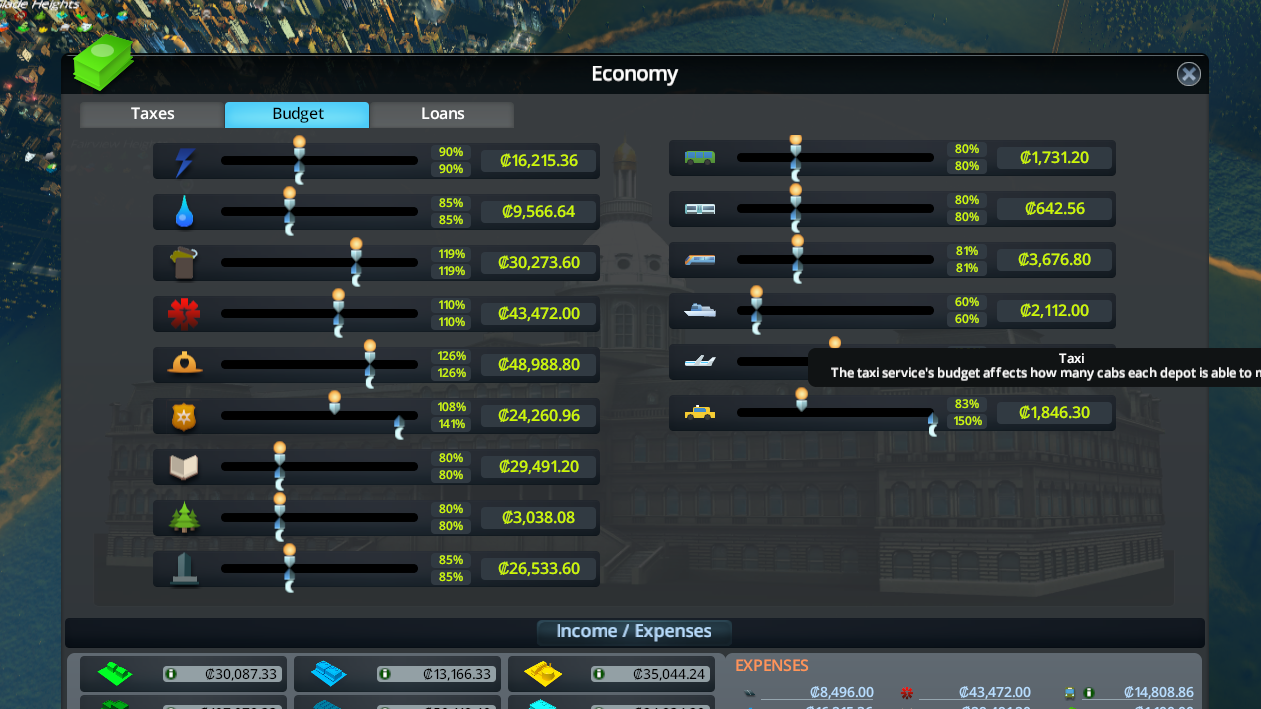
In addition to leisure, you can specialize districts for tourism, and there are a number of new attractive buildings for your city's shorelines. Restaurants on a piers, beach volleyball courts, boat marinas, docks for fishing, and other attractions. Other new ploppable buildings include a prison, a riding stable, a cargo hub that handles both ship and train-based freight, and a sprawling international airport that will make you hate the words "Slope too steep!" like you never have before. There are also new roads with dedicated bus, cab and bike lanes, and a handful of new policies like one that encourages bicycle use and another that cuts down on nighttime noise pollution by making commercial buildings close after sunset.
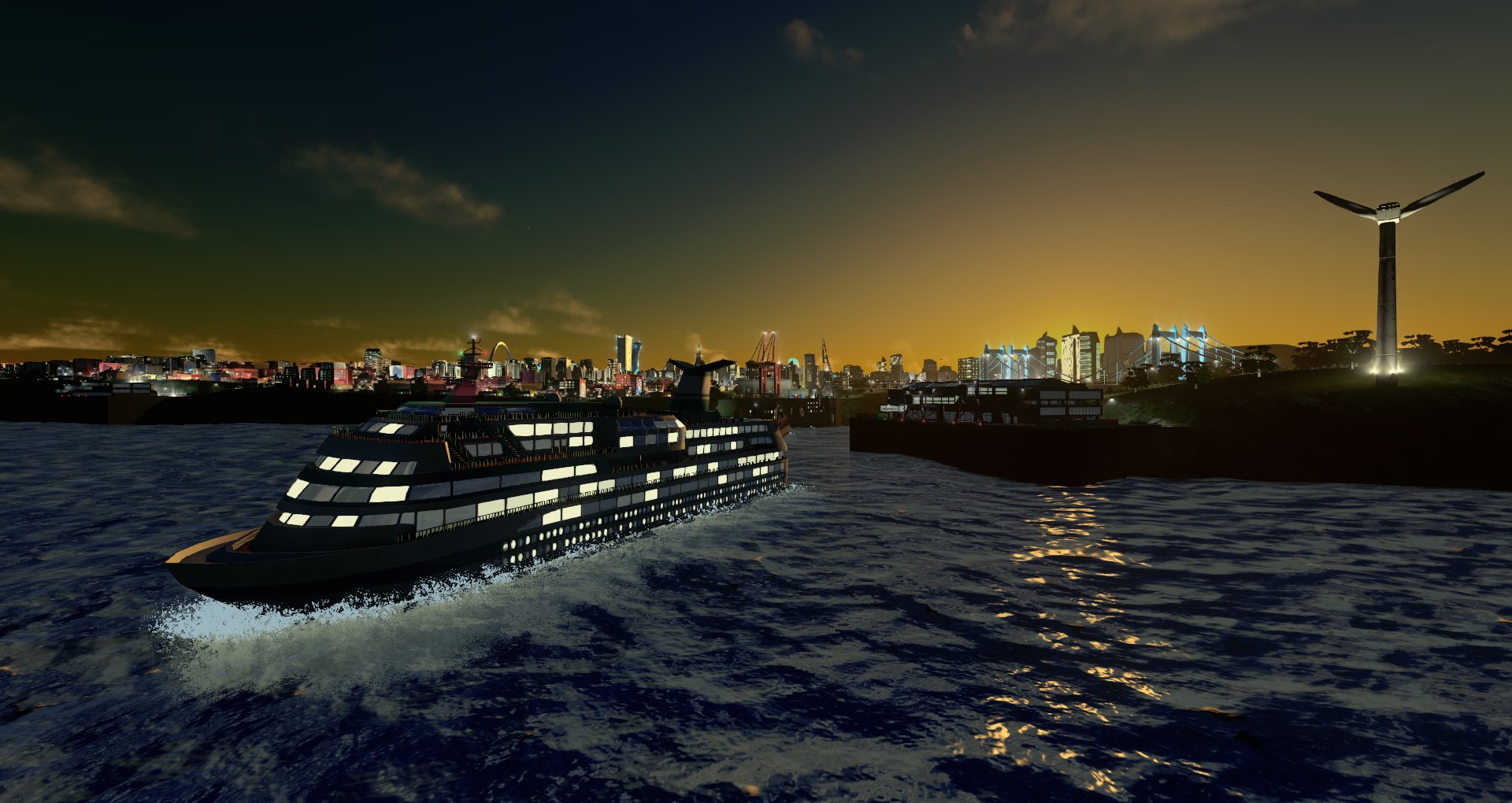
Arranger in the Night
Does After Dark really change the game, or just add to it? I began a new city from scratch to find out, and while I enjoy the additions, it's not what I would call a major game changer. It provides new goals: some of the new buildings, like the zoo, require a few other buildings to be constructed first, and unlocking a casino and a golf driving range require 5,000 squares of the new leisure and tourism areas to be built, which gives you an extra push to focus on these new areas.
There was a bit more crime at night in my city but as in the pre-expansion Skylines I never really felt crime was an issue. Traffic problems felt roughly the same as well, though nighttime congestion may have been offset by all the extra cabs I added. Solar power plants, obviously, will only be half as effective now, so you may need to make changes if you rely on them exclusively. The day/night budget sliders are nice, but I didn't feel like I spent much more time fiddling with the budget than usual. Challenge-wise, building my new city didn't feel any more difficult, though honestly Skylines itself was never really difficult in most respects. It's definitely a challenge to build a genuinely efficient city, but even the sloppiest and most poorly-planned of my creations always seem to grow and thrive no matter what.
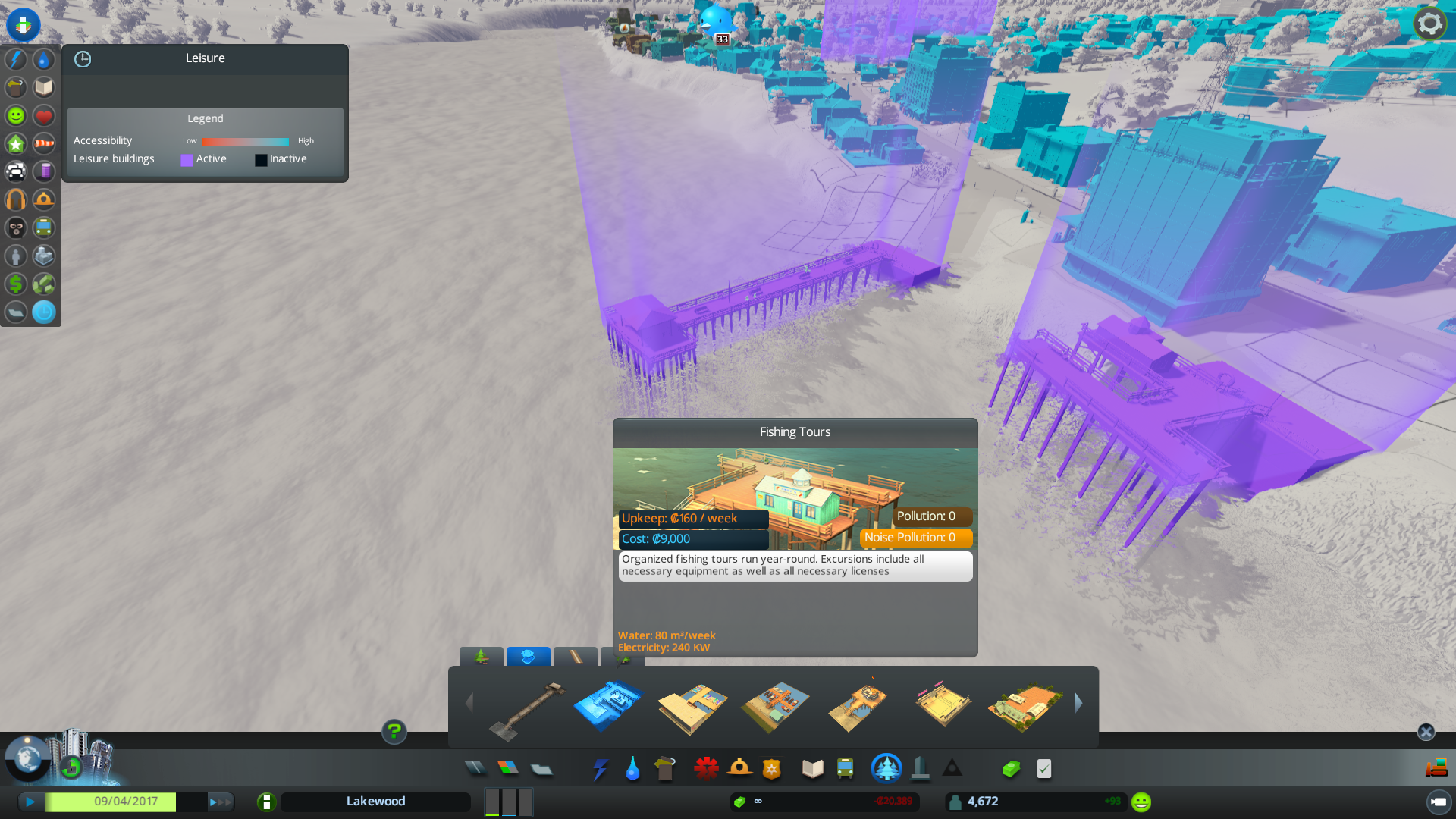
As a pure enhancement, though, After Dark does the job nicely. The new options for dedicated lanes in roads are great, the new buildings are enjoyable and useful, and the leisure and tourism areas give you some fun new things to focus on. Laying roads and rail lines at night initially feels irritating, because it's so dark you can't see a damn thing, but the nighttime can be quickly toggled off and on in the menu if you happen to be working when the sun goes down.
On the one hand, the expansion feels a trifle steep at $15, though to be fair the price of the base game is extremely reasonable, so I feel like it offsets. And, the good news is that even if you don't buy the expansion, you still get a few things for free with the patch. You get the day/night cycle, the new day/night budget sliders, increased property values along coastlines, and increased crime in the evenings (though the prison only comes with the paid expansion). There are also a bunch of free new growable buildings to give your city a more diverse look, if you haven't already been doing that with community creations.
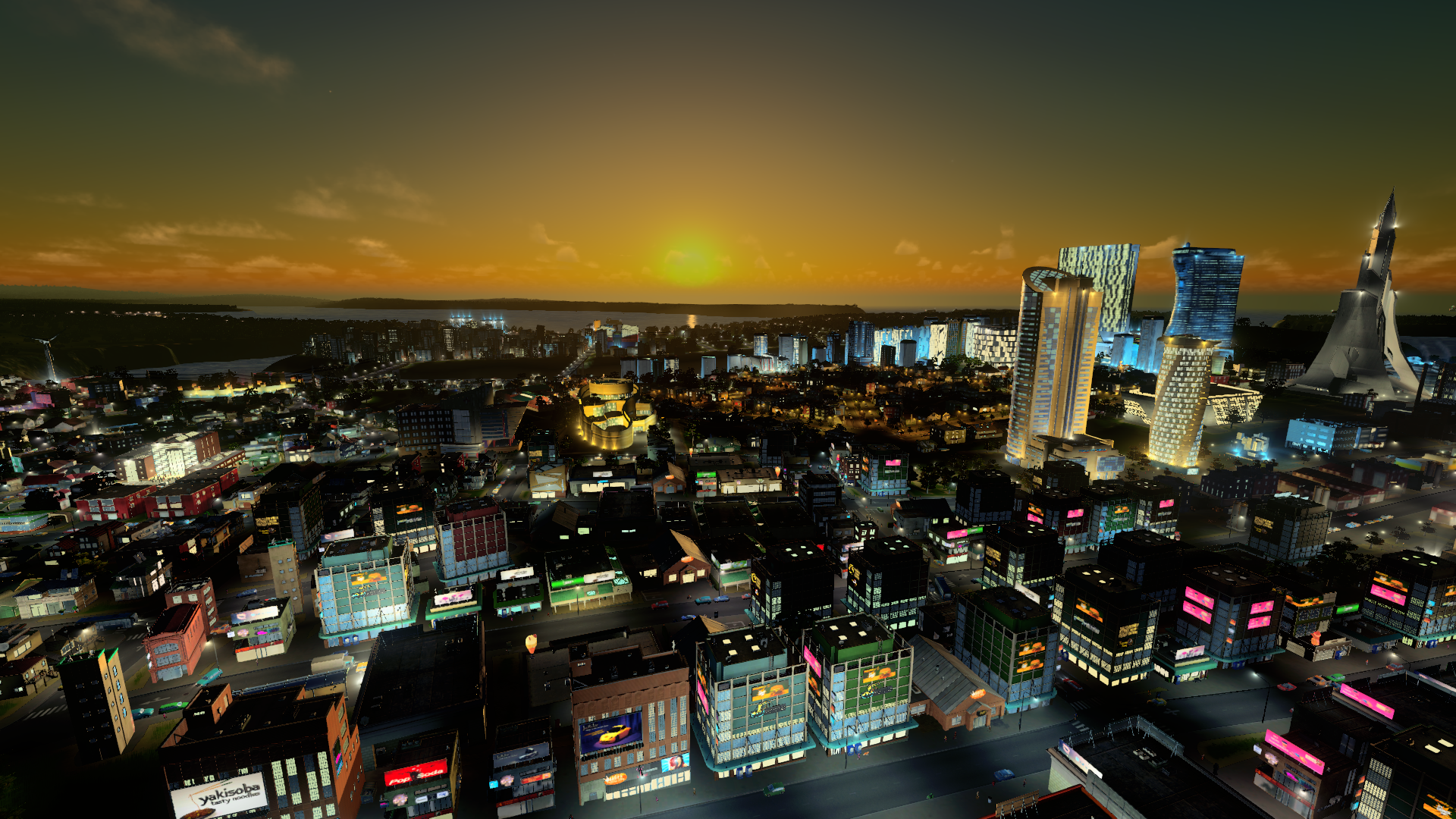
Don't forget to take some time to enjoy the sunset.
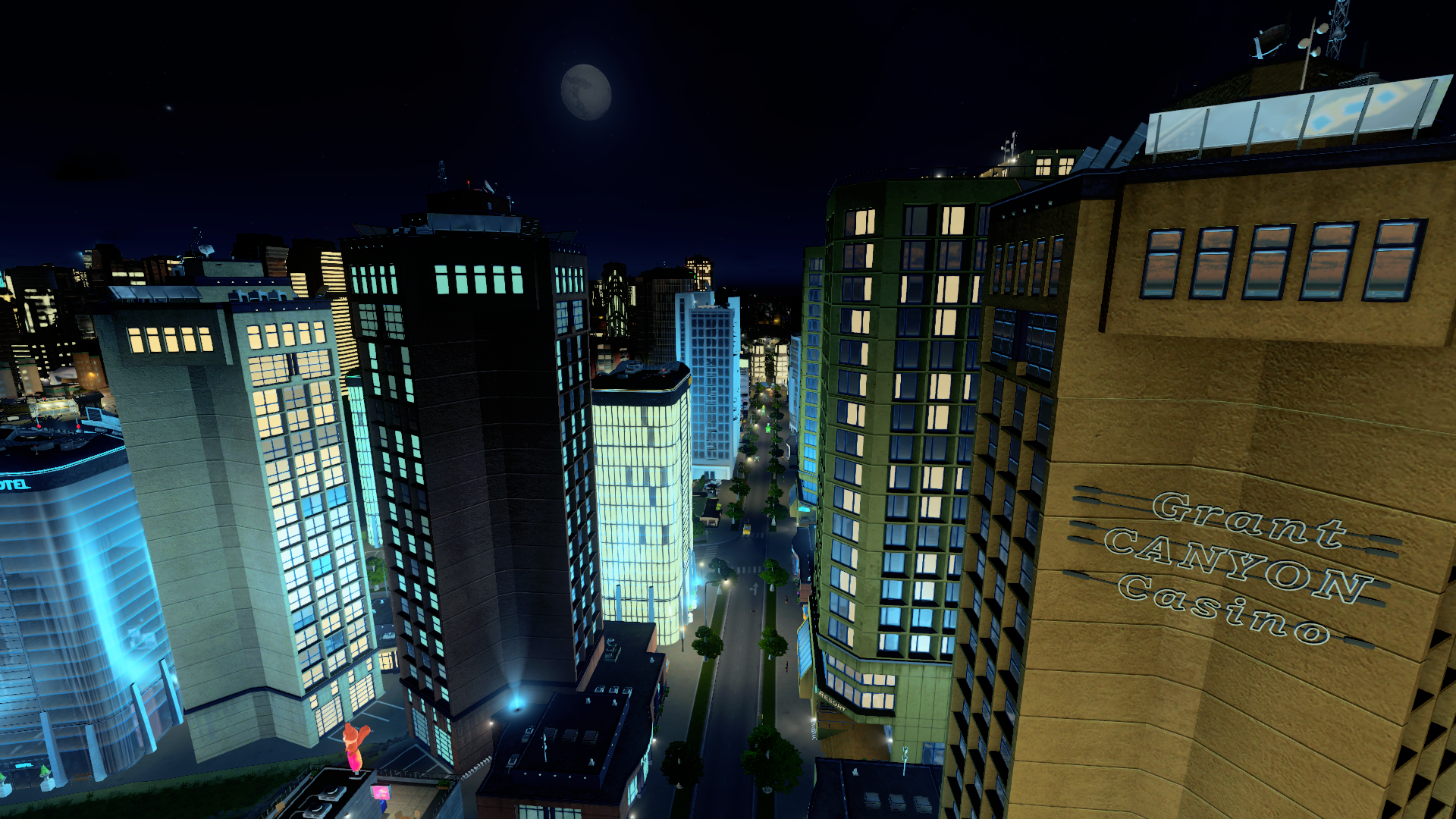
On regular speed, nighttime takes about 11 minutes to pass.
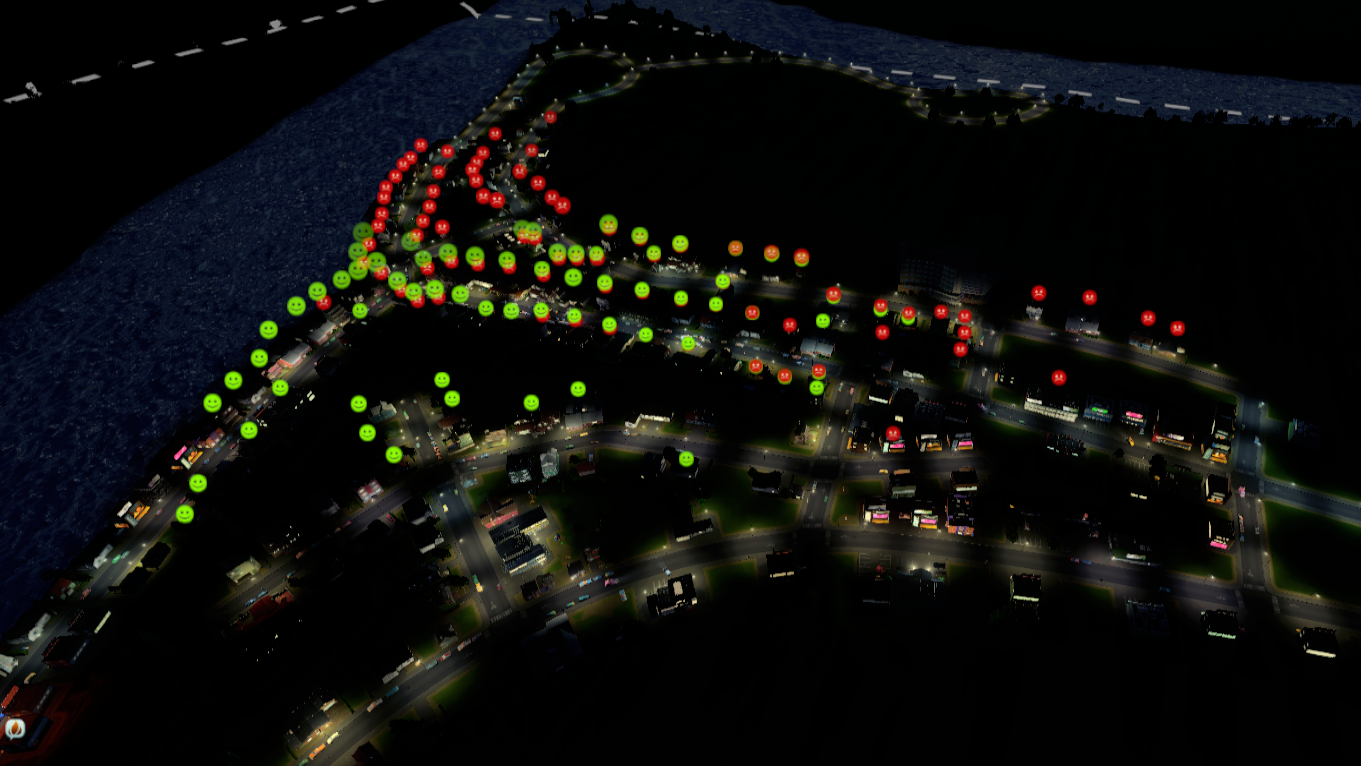
Even in the dark, it's easy to see how your citizens feel about you.
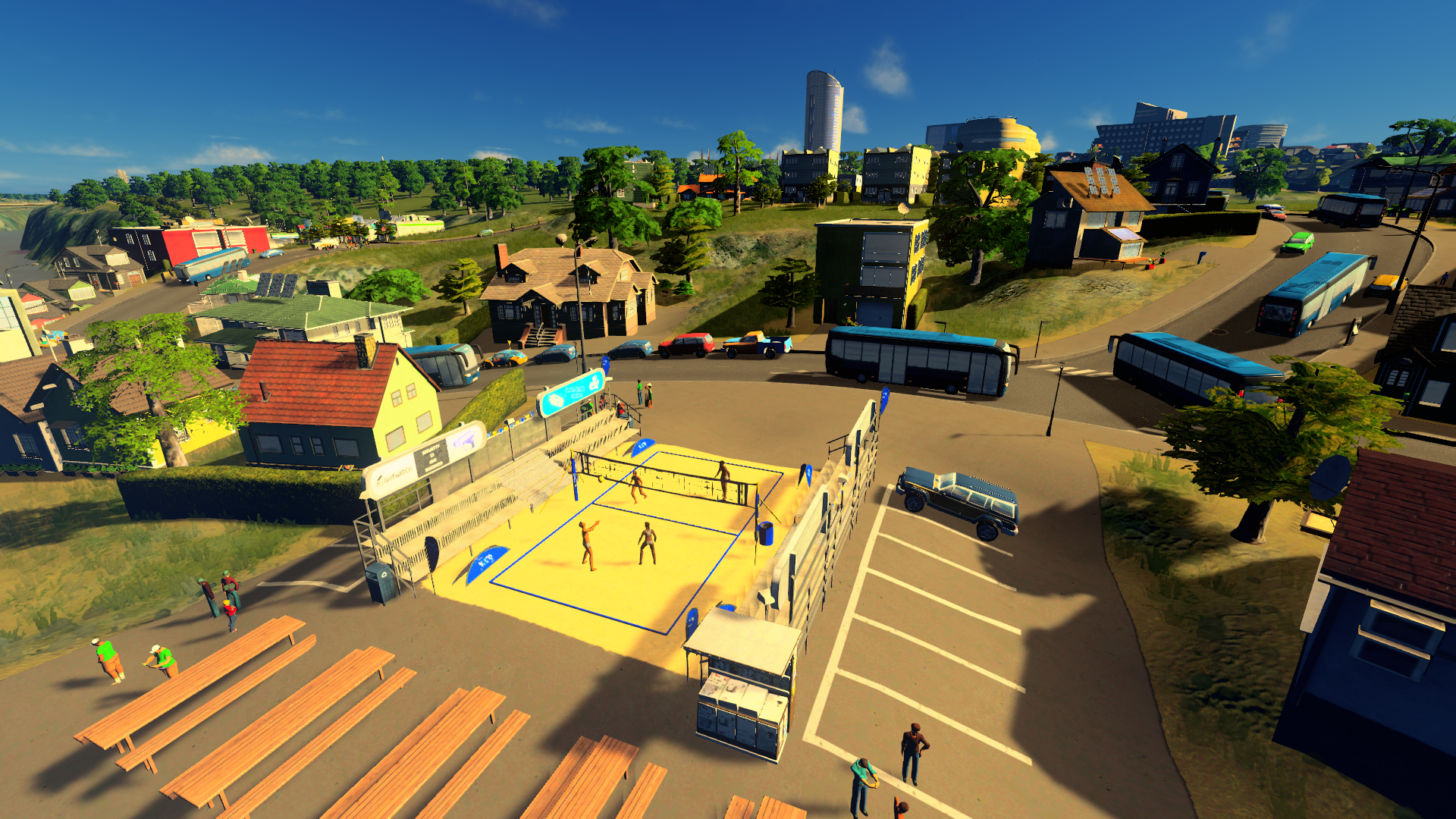
You can spice up your shorelines with beach volleyball courts.
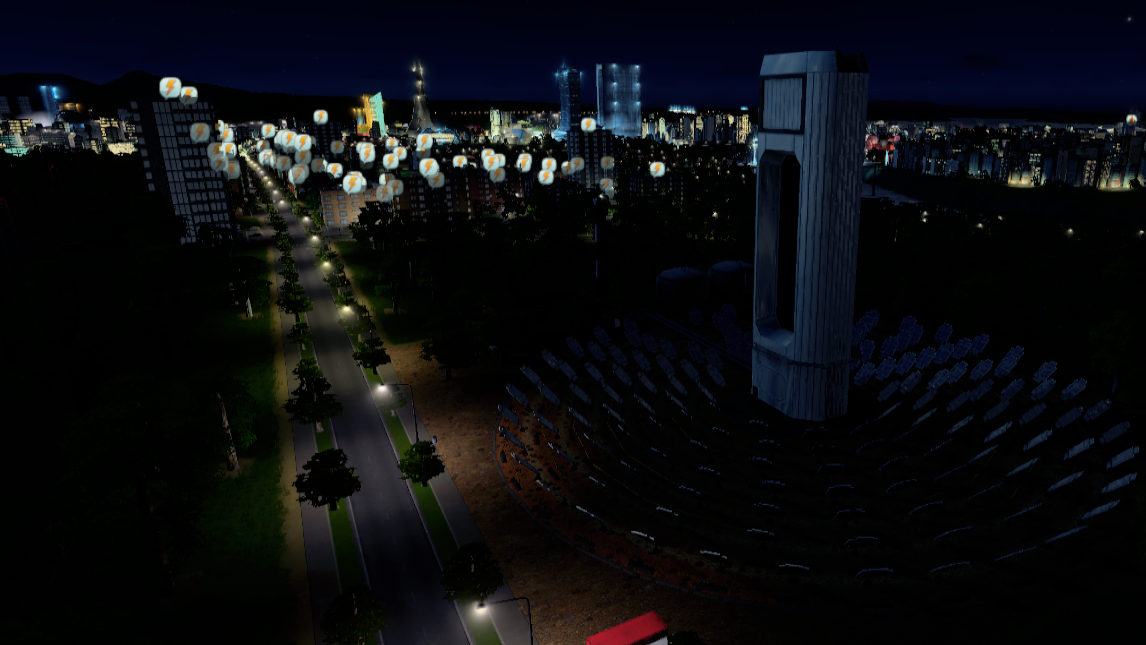
If you rely exclusively on solar power, nighttime is not your friend.
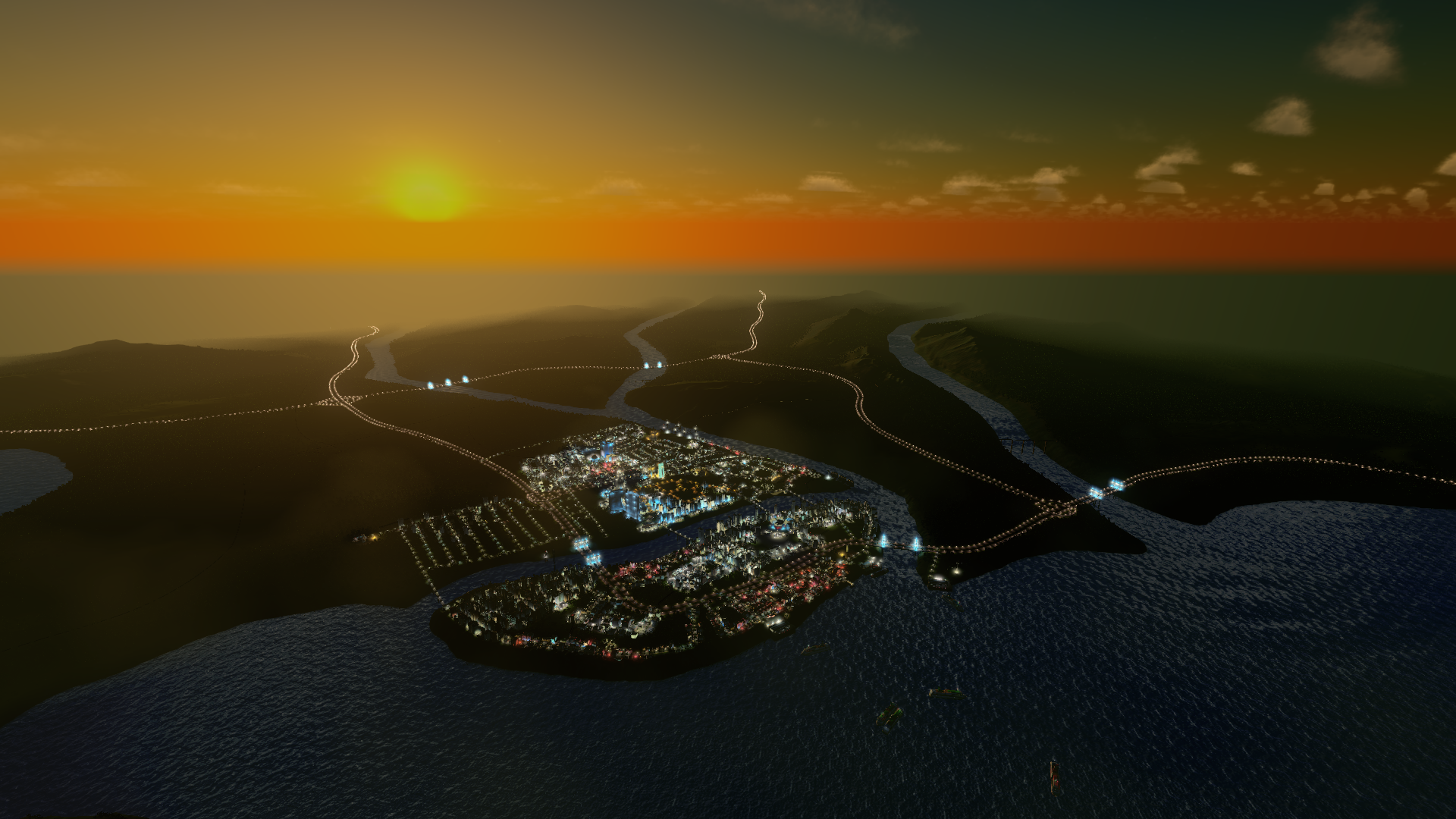
At night, no one can see how much poop you dump in your rivers.
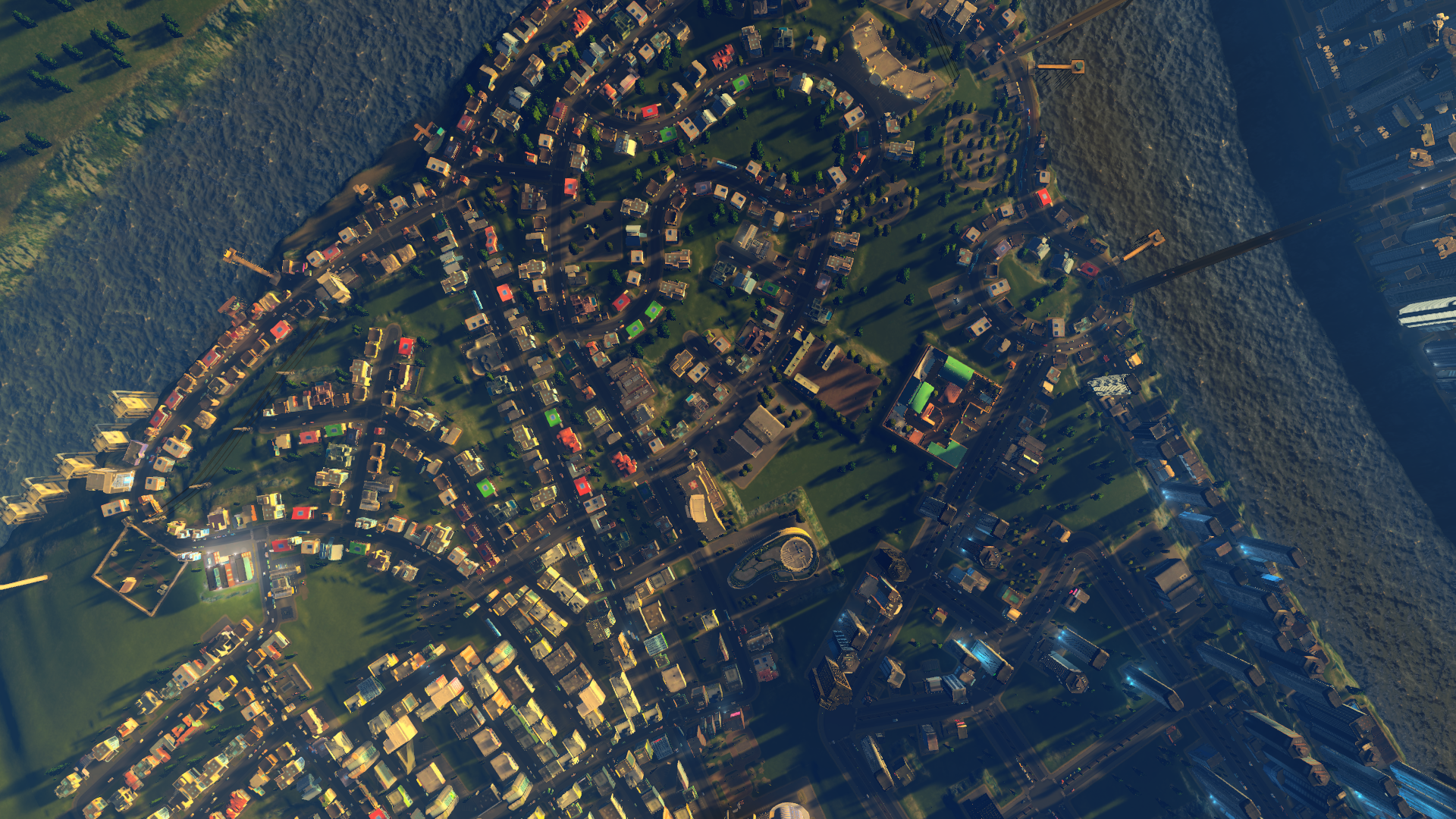
Visually, this is a very welcome change.
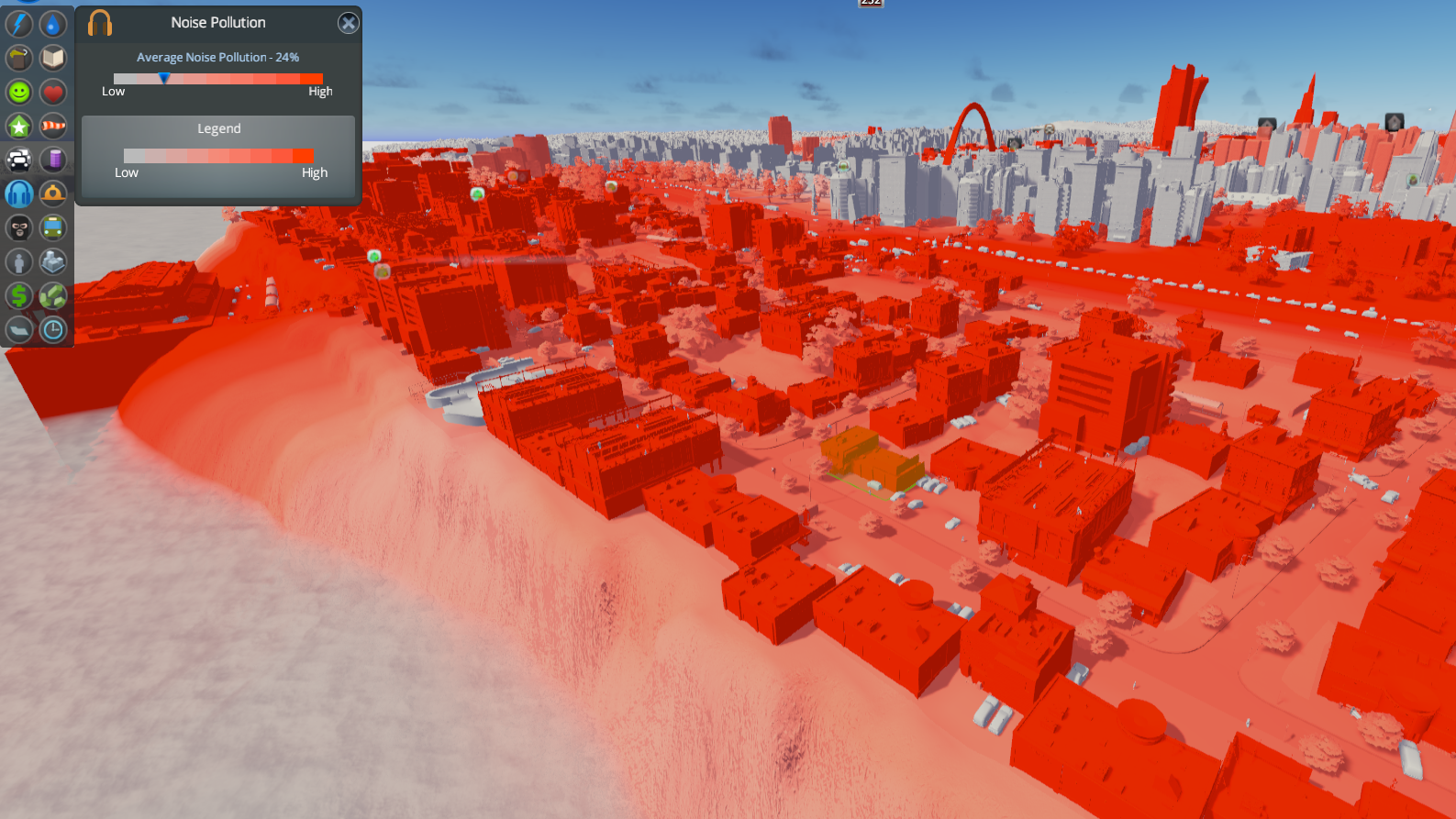
Nighttime hotspots create new revenue, and also a lot of extra noise.
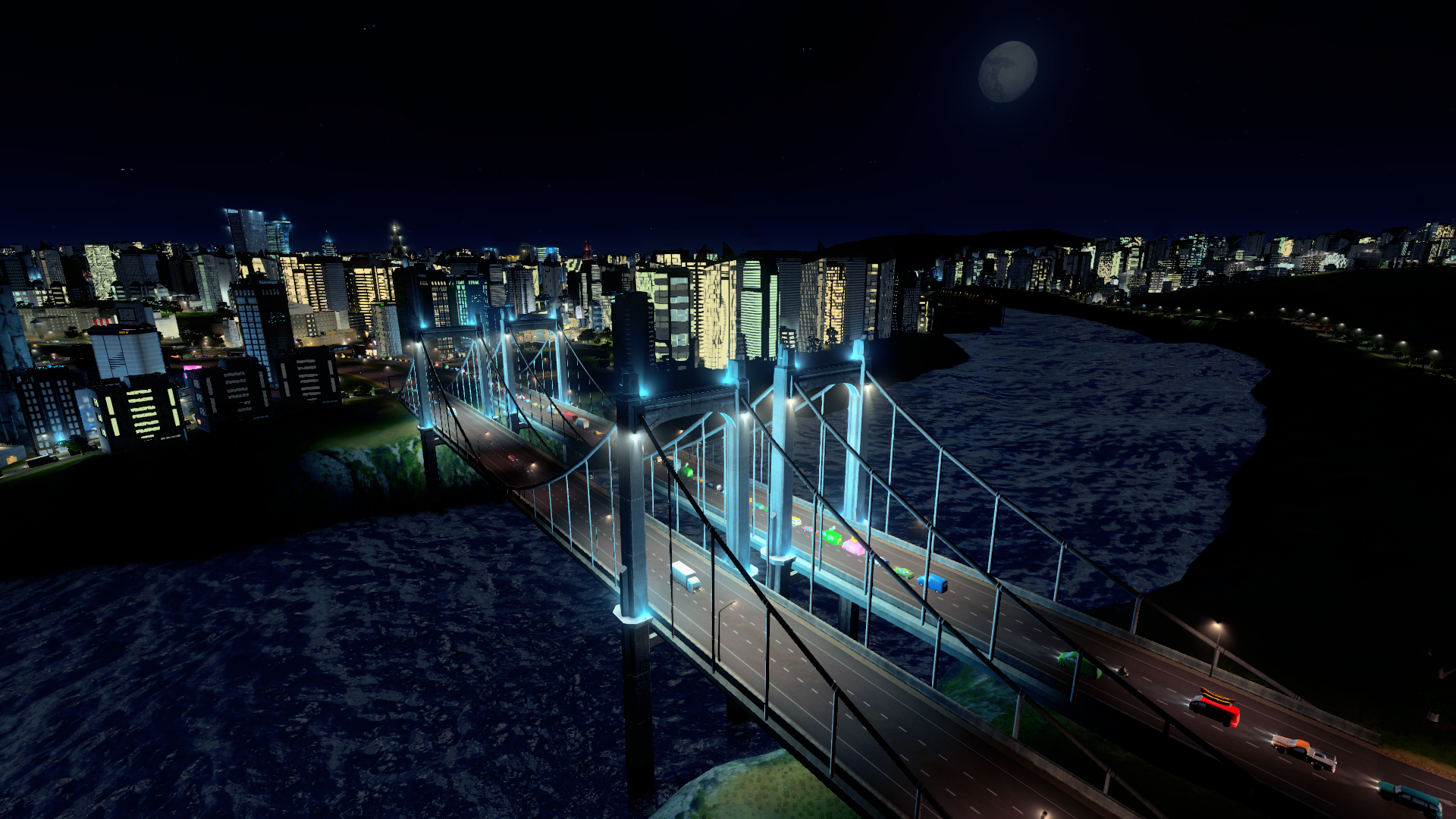
How long until someone mods in the phases of the moon? Currently, it's always full.
Provides nice visuals, new buildings, and some fun options for crafting and managing your city.

Chris started playing PC games in the 1980s, started writing about them in the early 2000s, and (finally) started getting paid to write about them in the late 2000s. Following a few years as a regular freelancer, PC Gamer hired him in 2014, probably so he'd stop emailing them asking for more work. Chris has a love-hate relationship with survival games and an unhealthy fascination with the inner lives of NPCs. He's also a fan of offbeat simulation games, mods, and ignoring storylines in RPGs so he can make up his own.
